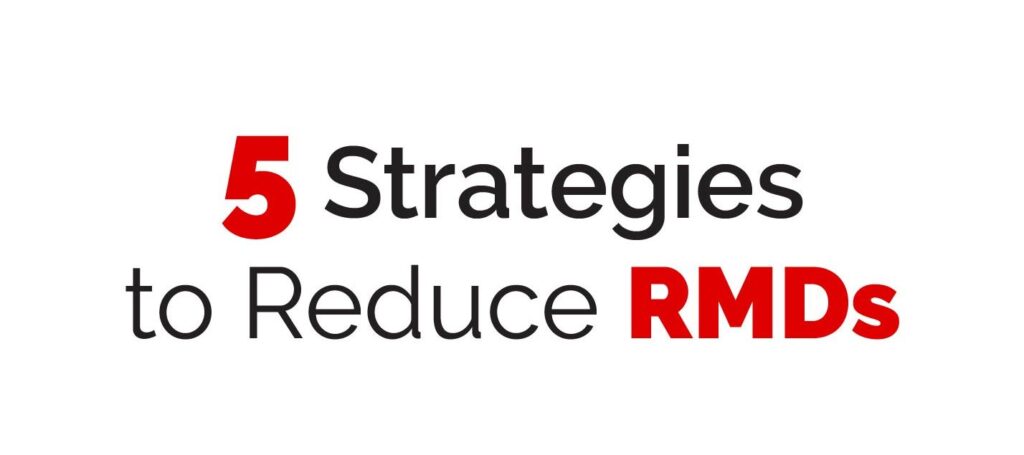5 Strategies to Reduce RMDs (Required Minimum Distributions)
When an investor reaches age 73 the IRS requires they start taking a minimum amount from their retirement accounts regardless of whether they need the funds. Individuals that have done “too good” of a job saving in retirement accounts will often be forced to take an amount that is larger than what they need to live off. For those individuals, we will review 5 strategies that they can potentially begin implementing to reduce the impact of future required distributions.
Roth Conversions
When you complete a Roth conversion, you elect to intentionally pay taxes in the year of the conversion and, in exchange, make the funds tax free if they are taken for a qualified distribution. Additionally, Roth IRA’s are not subject to required minimum distribution (RMD) rules.
This would be a prudent decision if an individual expects to be bumped into a higher tax bracket by their RMD’s in the future. By intentionally paying taxes now, at a lower rate, they reduce the lifetime tax cost associated with the pre-tax retirement account funds.
Account for a Spousal Beneficiary 10 Years Younger
An individual’s RMD is generally calculated by taking their age at the end of a calendar year and using the divisor associated with that age on the IRS’s divisor table. There is an exception to this calculation for individuals that have a spouse that is 10 or more years younger than they are.
As long as the spouse is the sole beneficiary of the IRA account, the IRS will allow the account owner to use a special divisor table that requires a smaller amount be taken and is calculated based on the younger spouses age.
Utilize Net Unrealized Appreciation
Net unrealized appreciation (NUA) allows an individual to take appreciated employer stock from their 401(k) and distribute the stock into a taxable (non-retirement) brokerage account. The basis of the stock (amount used to purchase the shares) is taxed as income in the year distributed but the appreciation is taxed as a long-term capital gain in the year the stock is sold.
Additionally, this strategy reduces the future RMD’s because these funds are no longer in a retirement account and therefore not subject to the RMD calculation.
Make Qualified Charitable Distributions
For those that have reached age 70.5, qualified charitable distributions (QCD’s) can be made directly from an IRA account to charity and are excluded from income. This is beneficial because it ensures that you get the tax benefit of giving regardless of whether you itemize your taxes. Additionally, the income exclusion helps for calculations related to Social Security taxation and Medicare surcharges (IRMAA).
For individuals that are required to take an annual RMD, the QCD amount counts towards the required distribution.
Complete a 401(k) Rollover
When calculating an RMD on 401(k) monies, the entire account balance (both pre-tax and Roth funds) is used to calculate the required amount. IRA accounts, on the other hand, exclude Roth balances in the calculation.
An individual that has $1 million in a 401(k) split evenly between pre-tax and Roth sources would have twice the RMD as someone with the same breakdown split between Traditional and Roth IRA’s.
If you’d like to discuss any of these strategies and how they might apply to your situation, schedule a meeting with our team here.
If you’d like to sign-up for our monthly newsletter with four high-quality, financial planning focused posts per month, click here.
Disclosure: Any information is not a complete summary or statement of all available data necessary for making an investment decision and does not constitute a recommendation. Prior to making any investment decision, you should consult with your financial advisor about your individual situation. Any opinions are those of the author and not necessarily those of Raymond James. Please note, changes in tax laws may occur at any time and could have a substantial impact upon each person’s situation. While we are familiar with the tax provisions of the issues presented herein, as Financial Advisors of RJFS, we are not qualified to render advice on tax or legal matters. You should discuss tax or legal matters with the appropriate professional.




